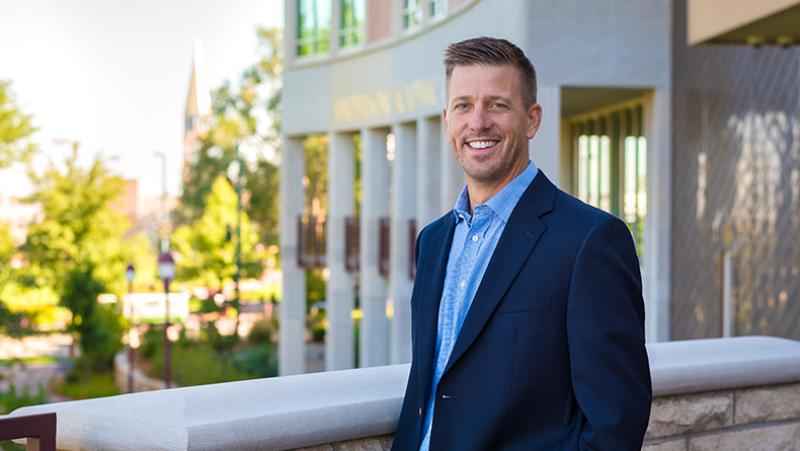Homelessness and Brain Injuries
New cross-disciplinary study is exploring the relationship between traumatic brain injuries and homelessness

An estimated 50–70 percent of people experiencing homelessness also have a history of traumatic brain injury (TBI), but despite this staggering statistic, TBI is seldom mentioned in homelessness research and strategies. To fill this gap, University of Denver Graduate School of Social Work (GSSW) Professor Daniel Brisson and Graduate School of Professional Psychology Clinical Professor Kim Gorgens are assessing the cause-and-effect relationship between traumatic brain injuries (TBIs) and homelessness and identifying effective interventions for people with a history of TBI who are experiencing homelessness.
In partnership with the Brain Injury Alliance of Colorado and service providers in Alamosa, Fort Collins, Grand Junction and Sterling, Colorado, Brisson and Gorgens will conduct an intensive census of people experiencing homelessness and analyze the data to identify prevalence rates of TBI and homelessness in the four communities and address differences across geographies and types of homelessness (chronic vs. episodic). Paired with empirical findings on the most effective strategies for addressing co-occurring homelessness and TBI, findings from the research may lead to the development of interventions to prevent homelessness for those with a TBI, says Brisson, executive director of GSSW’s Center on Housing and Homelessness Research.




